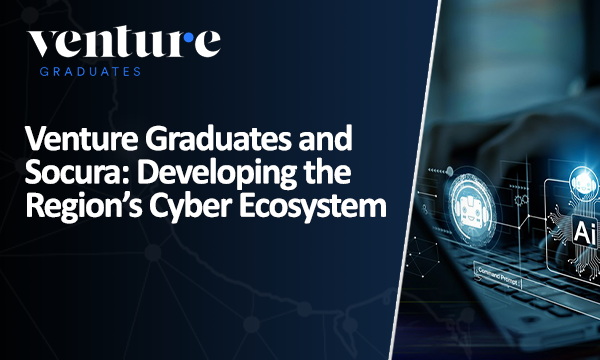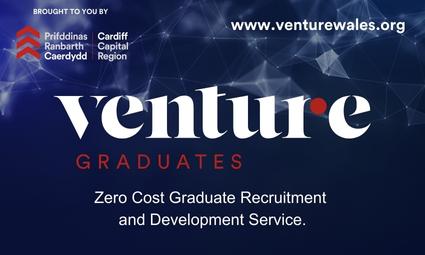 Interview with:
Interview with:
Martin McHugh,
Acting CEO and CTO, CSA Catapult.
Even in a world where nothing stays still for very long, it’s tempting to think of Semiconductors as, well, good old Semiconductors. Slivers of silicon that first came to popular consciousness in the late 50’s and early 60’s, powering a new era transistors and microprocessors, ushering the age of the mass computer and eventually creating the platform for the digital world we now live in.
Wales gave birth to the modern UK Semiconductor industry
It may surprise, but Wales helped give birth to the modern UK Semiconductor industry – with the Inmos plant opening on the fringe of Newport in 1982. By the late 90’s, when South Korea’s LG Electronics launched its state-of-the-art clean room operation at Imperial Park on the west side of Newport (at the time seen as the largest single inward investment in Europe), Semiconductors were absolutely essential to helping power just about ‘everything’. Even 20 years ago, people couldn’t imagine a world without them. The TV plants at Sony, Panasonic and Hitachi relied on them as integral parts of any visual system being made. The vehicles being manufactured at Ford needed them for the computerisation of a new generation of car. The fast emerging devices called Mobile ‘Phones wouldn’t work without them. Nor your microwave oven, and possibly not even your fridge.
Semiconductors have allowed us to continually miniaturise devices to become ever smaller, more efficient and more powerful. They have literally shaped the world we live in and the way we live in it. But the world of Semiconductors is changing. Hugely. And Wales is yet again the engine of that seismic change, with a global centre of excellence emerging, built on pioneering businesses such as Newport Wafer Fab, IQE – and a global game changer called CSA Catapult.
![]()
Smaller and lighter makes everything Faster & Better
The Catapult really is catapulting semiconductors – and everything powered by them – to a place never seen before. A place made possible by Compound Semiconductors. The simple addition of the word ‘compound’ may look innocuous enough, but it represents one of the biggest leaps in power and energy conversion imaginable. Simply put, Compound Semiconductors enable far more power to be delivered without excessive heat being generated. So your mobile ‘phone will never get hot in your hand. The 5G antennae so sorely needed throughout Wales and beyond will be much smaller and massively more powerful, able to connect people and businesses far more efficiently. And your electric car will be lighter, able to recharge quicker and allow you to drive longer on a single charge. Compound Semiconductors are taking the world and the way we live to a new level, in a much more sustainable, net zero way.
Shaping a more sustainable, net zero world.
The future belongs to (and is being created by) the Catapult and the Welsh Compound Semiconductor Cluster that’s grown within a 20-mile radius of Newport. As Martin McHugh CEO/ CTO of the Catapult explains:
“The semiconductor has become a part of our everyday lives in this world. Compound will take this to a whole new level, from vastly improving healthcare monitoring and saving the lives of millions of people, to powering satellite systems that help crop growth to feed the world’s population. Over £700 million has been invested in British Universities to help seed it, top UK-based engineering businesses such as McLaren have fully embraced it as an electric converter technology – and the Catapult exists to fully optimise its use, taking an amazing array of ideas for potential application and making them a reality for people, businesses and government.”
The Catapult is already leading the way in two fields that are essential for everyone on the planet – smart energy distribution that delivers a net zero world; and the 5G telecoms so critical in an increasingly homeworking Post-COVID world that needs to be much more connected. As Martin explains:
“Taking the global lead in compound semiconductors will allow Wales and the UK to have a strategic stake in the future. It makes us much more resilient and future-proofed as a country, allowing us to develop this expertise and the myriad applications that are coming our way, for the good of everyone everywhere.”
The Catapult laboratories have been open for just over a year, and even with the arrival of COVID has made an impressive start – talking to Dwr Cymru, Scottish Power and Western Power about harnessing the tangible benefits of Compound Semiconductors into their operations, working with a Welsh-based medical business to take them to another level; and helping many start-ups, including a space exploration company, to develop their product in the collaborative and expert hub environment created at the Catapult.
How long before we begin to see the results in action?
“There’ll be a top-name-manufactured car on the road being powered by compound semiconductor by 2024” says Martin. “It will revolutionise the electric car to such an extent that a few years from now, when people understand the benefits it brings, they’ll be walking into a car showroom and asking for a car with silicon carbide in it, just as today we look for food that’s organic or products with a low carbon footprint. That’s how fundamental the world will be changing because of the work being done here at the Compound Semiconductor Cluster.”
Growing Welsh skills, developing Welsh talent, building Brand Wales.
As the skills that built traditional South Walian industries become increasingly obsolete in a changing job market, the Compound Semiconductor Cluster is a monumental opportunity to build a 21st century skills base, promising a bright and secure future for employees, more rewarding than ever before.
![]()
“We envisage over 3,000 well paid new jobs being created, performing interesting work with a real purpose” explains Martin. “Research by the University of Cardiff shows that every £50k salary translates into an £83k ‘spill-over’ contribution to the local economy – so the positive effect a number of these roles will have on the whole Region is very significant.”
Close relationships with Universities are just as significant, with Catapult sponsoring STEM degrees and PHDs in partnership with the UK Electronic Skills Foundation.
“We’re here to make sure that the hundreds of millions invested in Universities to develop compound semiconductors is put to the best possible use” notes Martin.
“In many ways, our purpose is to extract knowledge and tech from the universities and work with industry to transform the ideas into the applications needed by the end user. That also helps the government get the percentage of R&D value up to its target of 2.4% of GDP. And it helps Universities to improve their Russell Group ratings. So everyone wins with compound semiconductors.”
That win-win also extends to schools and Further Education. Launch of the Catapult STEM Academy will deliver a Compound Semiconductor Kit that enables highly engaging pupil participation in the practical uses and incredible potential of Compound Semiconductors, with lessons (such as how to revolutionise healthcare) focused on bringing more female students into a traditionally male-dominated discipline. It’s a commitment to future generations that’s practiced as well as preached, with Martin rightly proud of the fact that “half of the staff at the Catapult are STEM Ambassadors”.
Wales led the world in power and energy – and can do so again.
The Financial Times recently ran an article on the Catapult phenomena and its place in a Compound Semiconductor cluster that’s leading the world from South East Wales. Comparison was made between the century of Welsh coal that satisfied one third of the world’s energy demands; and the Compound Semiconductor sunrise that’s beginning to shine its light far and wide from Newport’s Imperial Park. Putting the well-meaning ‘Welsh’ and ‘Coal’ connection to one side, the FT absolutely nailed the fact that Wales really can become a global powerhouse in a core source of energy conversion that’s shaping everything on the planet. Spending time with Martin – “it’s our time to be bold, ambitious, positive and confident” – leaves no one in any doubt that the vision of the Catapult, building on the pioneering work established by key semiconductor players back in the early 1980s, is about to become a reality.










